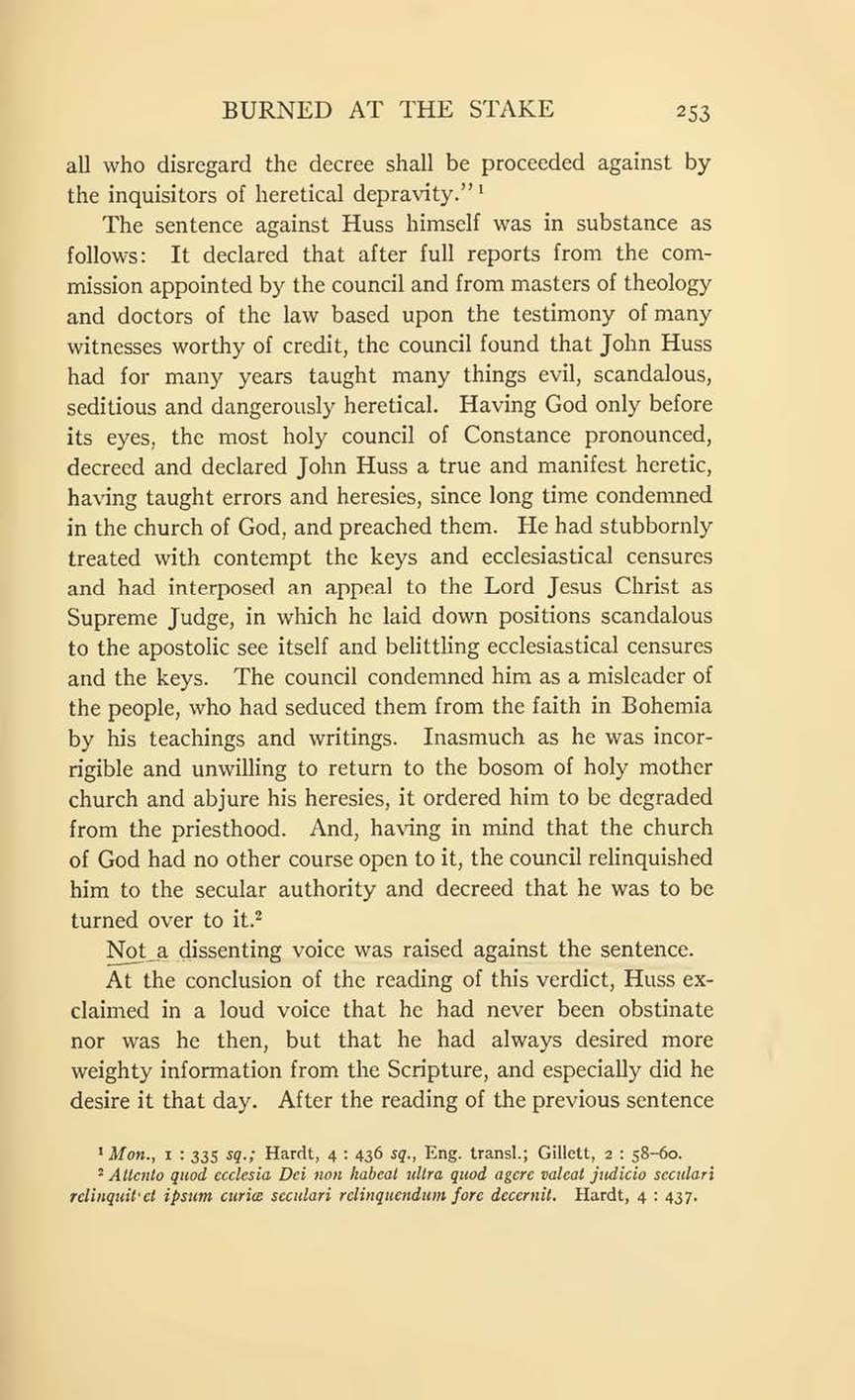all who disregard the decree shall be proceeded against by the inquisitors of heretical depravity.”[1]
The sentence against Huss himself was in substance as follows: It declared that after full reports from the commission appointed by the council and from masters of theology and doctors of the law based upon the testimony of many witnesses worthy of credit, the council found that John Huss had for many years taught many things evil, scandalous, seditious and dangerously heretical. Having God only before its eyes, the most holy council of Constance pronounced, decreed and declared John Huss a true and manifest heretic, having taught errors and heresies, since long time condemned in the church of God, and preached them. He had stubbornly treated with contempt the keys and ecclesiastical censures and had interposed an appeal to the Lord Jesus Christ as Supreme Judge, in which he laid down positions scandalous to the apostolic see itself and belittling ecclesiastical censures and the keys. The council condemned him as a misleader of the people, who had seduced them from the faith in Bohemia by his teachings and writings. Inasmuch as he was incorrigible and unwilling to return to the bosom of holy mother church and abjure his heresies, it ordered him to be degraded from the priesthood. And, having in mind that the church of God had no other course open to it, the council relinquished him to the secular authority and decreed that he was to be turned over to it.[2]
Not a dissenting voice was raised against the sentence.
At the conclusion of the reading of this verdict, Huss exclaimed in a loud voice that he had never been obstinate nor was he then, but that he had always desired more weighty information from the Scripture, and especially did he desire it that day. After the reading of the previous sentence
